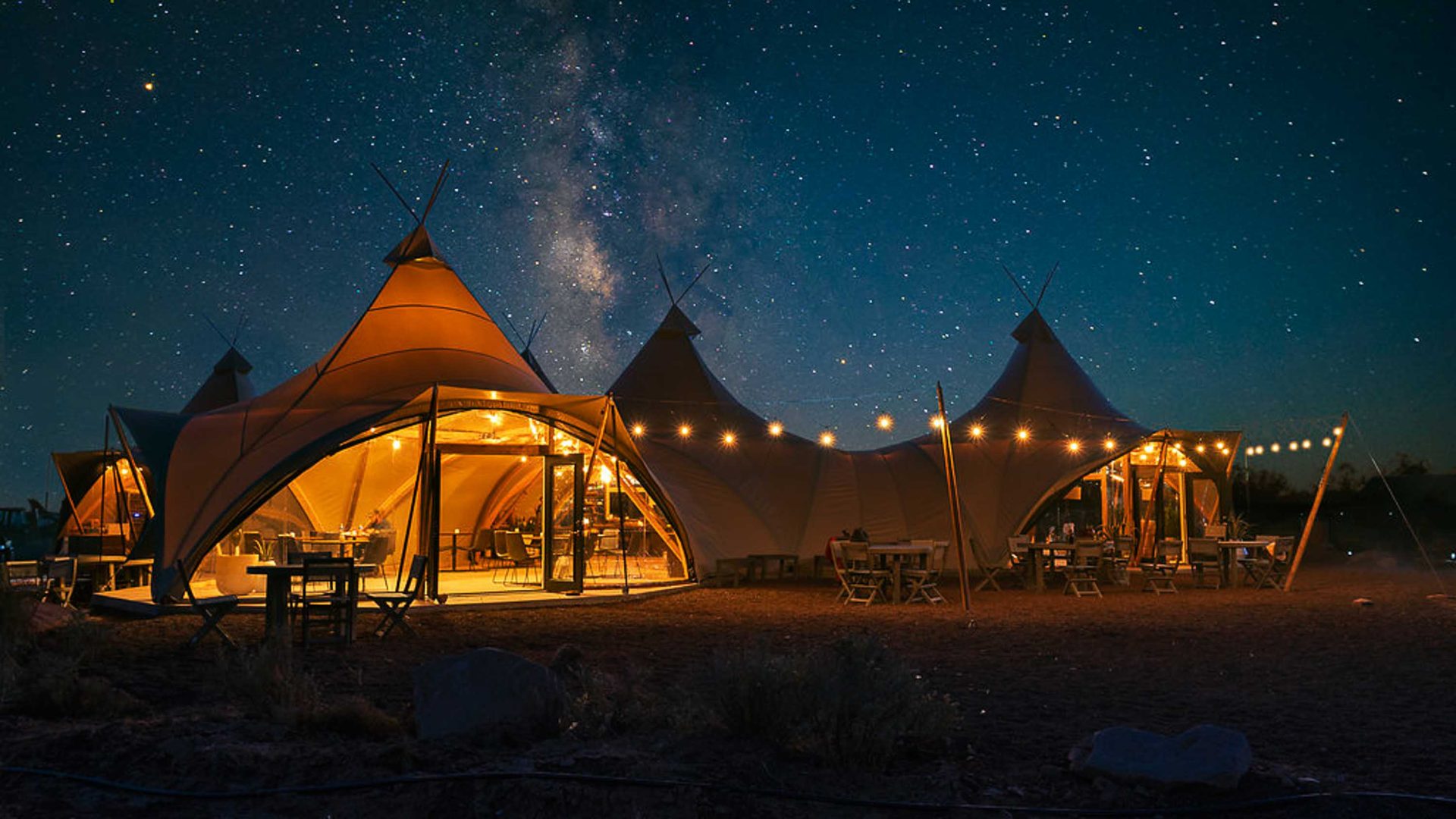
With astrotourism on the rise, the new ‘Dark Sky Lodging’ certification is about to go big, with lodges, yurts and campsites offering guaranteed Milky Way sightings. Maya Silver finds out more

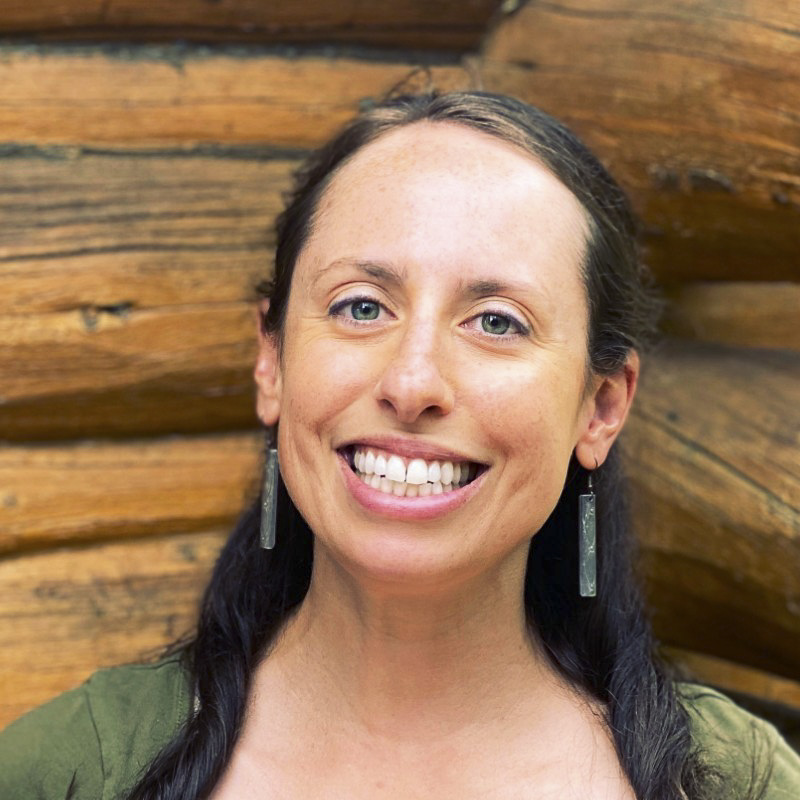
With astrotourism on the rise, the new ‘Dark Sky Lodging’ certification is about to go big, with lodges, yurts and campsites offering guaranteed Milky Way sightings. Maya Silver finds out more
Complimentary breakfast. High-speed wifi. And … Milky Way views? A certifiably dark night sky is the latest amenity coming to a hotel or glampsite near you, thanks to a new program from the non-profit DarkSky International.
While DarkSky has been certifying places with low light pollution since 2001, it quietly launched lodging certification last year. Now, hotels and other accommodations are able to join the 200-plus Dark Sky Places around the world in mitigating light pollution and optimizing stargazing.
For travelers like me, who are only mildly excited by amenities like fluffy towels, this new offering is welcome news. Growing up in the Washington, D.C. area, I was accustomed to the omnipresent glow of city lights, pinkish skies, and a feeble smattering of stars. After moving to Colorado, the night sky blew me away. Thousands of stars filled the black night and the iridescent galactic core arced across the sky. Now, I live in Utah, which has the world’s highest concentration of certified Dark Sky Places.
Utah is also home to our planet’s first Dark Sky Lodge: An Under Canvas glamping location in Lake Powell-Grand Staircase just north of the Arizona border. Not only does Under Canvas lay claim to the first certified lodging site, but it helped establish the program in partnership with DarkSky.
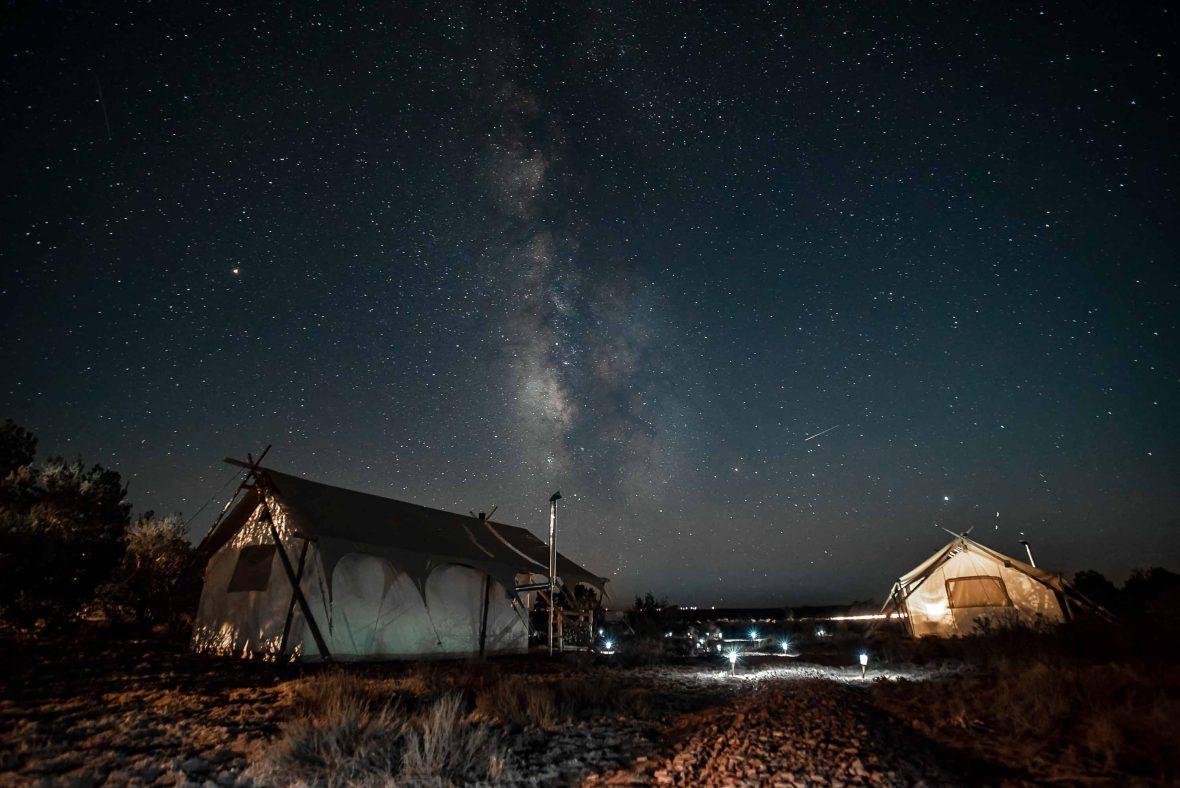
A few years ago, Under Canvas reached out to DarkSky to look into getting certified, but discovered a program didn’t yet exist for lodging so decided to collaborate on building this new certification.
They piloted the program with their newest location in development near Lake Powell and Grand Staircase-Escalante National Monument. Caitlan Cullen, VP of Development, worked with James Brigagliano, DarkSky’s lighting program manager, to select fixtures and make a dark sky-friendly lighting plan. DarkSky officially certified the location in August 2023.
To become certified, a property must overhaul lighting design, optimize sky quality, and offer dark sky outreach.
Since then, Under Canvas has certified four more locations in Zion, Bryce, Moab, and the Grand Canyon. Together with Lake Powell-Grand Staircase, these five resorts connect the lodging dots along the ‘Grand Circle’ Tour, a 1,500-mile road trip through public lands, and the ultimate goal is to certify all Under Canvas locations.
While these five Under Canvas locations remain the only lodging certified in the world to date, Brigagliano says the DarkSky Lodging program is “going to explode.” In the past few months, nearly 80 lodging companies have reached out, including an off-grid glamping site in Greenland, while properties in Honduras and Saudi Arabia are working toward certification.
Despite rising interest, the program’s growth won’t happen overnight. To become certified, a property must overhaul lighting design, optimize sky quality, and offer dark sky outreach. There are also fees associated to fund program administration, ranging from USD$2,500 to $12,000 for a more complex property.
Brigagliano works with applicants to create lighting plans designed to preserve dark skies and protect habitat for wildlife impacted by light pollution. Outreach is a more open-ended program element that asks lodges to educate guests about the importance of dark skies. That might look like stargazing events, onsite telescopes, or brochures about dark skies in the lobby, for example.
To fully confer certification, Brigagliano conducts an on-site sky quality measurement to ensure you’ll “be able to see the Milky Way with your naked eye”—a requirement that’s also part of the Dark Sky Places certification.
One tension point of the program: A lodge can only do so much through lighting design to ensure dark skies. Even with the most low-impact lighting possible, a hotel in, say, my hometown of Washington, D.C. wouldn’t be able to guarantee the visibility of the Milky Way.
“There are people in places with light pollution that want to do the right thing,” Brigagliano says. “We want to reward those people, too.” Down the line, he could envision a different form of certification program for properties that lack the right skies, but are doing what they can to address light pollution and spread awareness.
Another exclusion from the DarkSky Lodging program? Campgrounds. With RV campers and personal lighting gear, campground lighting “isn’t fixed,” explains Brigagliano. If you can’t fully control permanent lighting infrastructure, then you can’t guarantee dark skies.
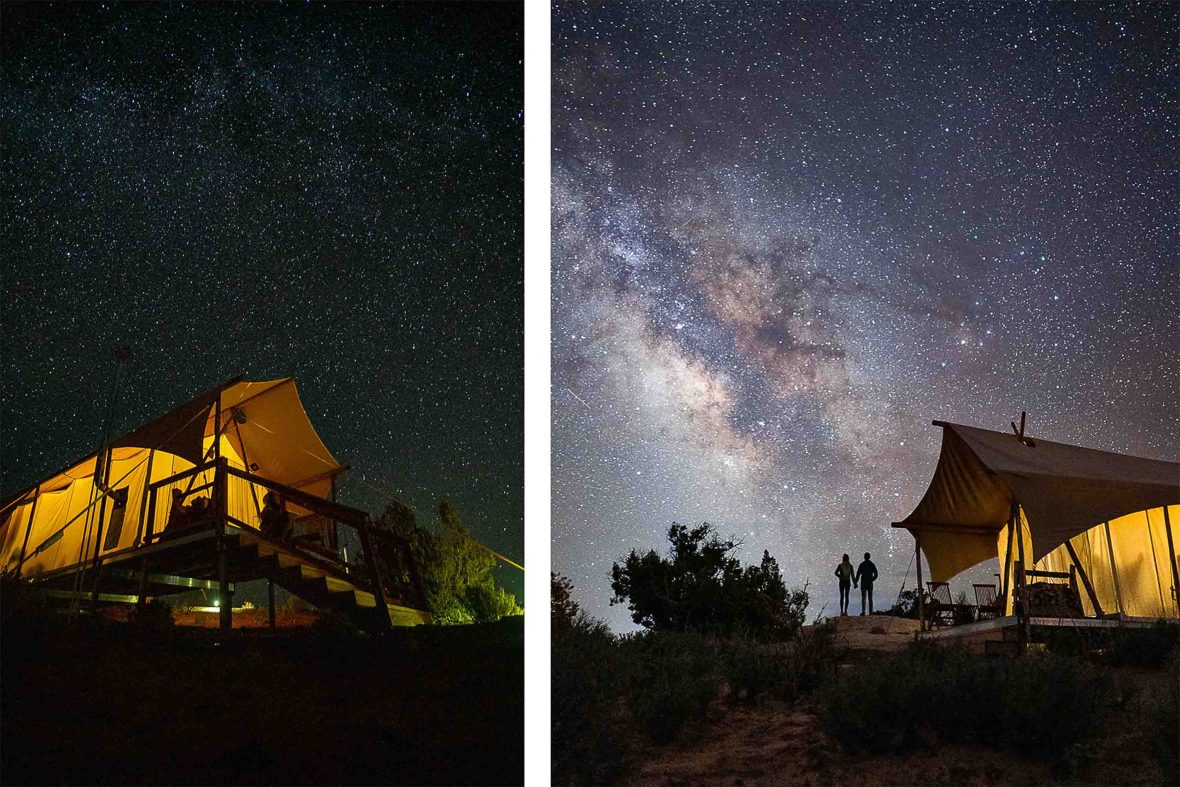
For the lodging industry, it’s a good time to add ‘Milky Way views’ to its list of amenities, with more and more travelers planning trips around the sky. The 2024 total solar eclipse was one of the biggest tourism drivers of the year, the aurora borealis is luring people north, and city dwellers are escaping light pollution to behold starry skies.
One caveat for dark sky tourists about those guaranteed Milky Way views though: Book your trip during or as close as you can to a new moon. Galactic views are best when human and lunar light alike is minimal.
***
Adventure.com strives to be a low-emissions publication, and we are working to reduce our carbon emissions where possible. Emissions generated by the movements of our staff and contributors are carbon offset through our parent company, Intrepid. You can visit our sustainability page and read our Contributor Impact Guidelines for more information. While we take our commitment to people and planet seriously, we acknowledge that we still have plenty of work to do, and we welcome all feedback and suggestions from our readers. You can contact us anytime at hello@adventure.com. Please allow up to one week for a response.
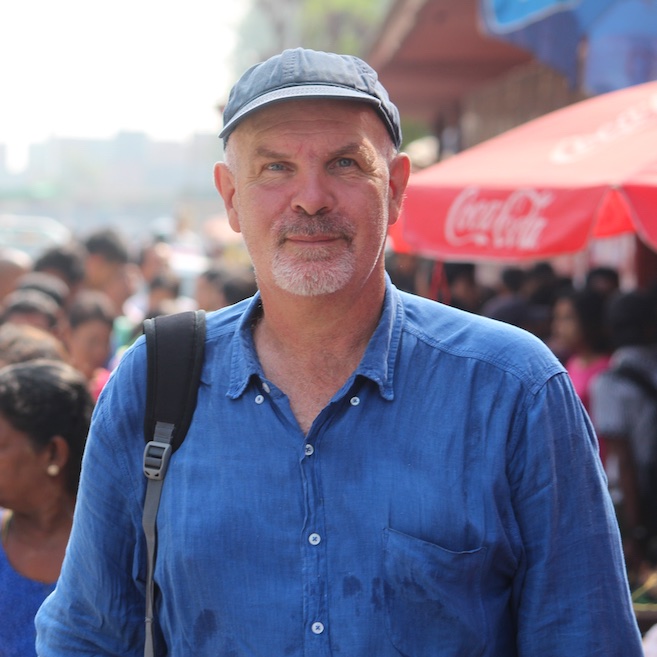

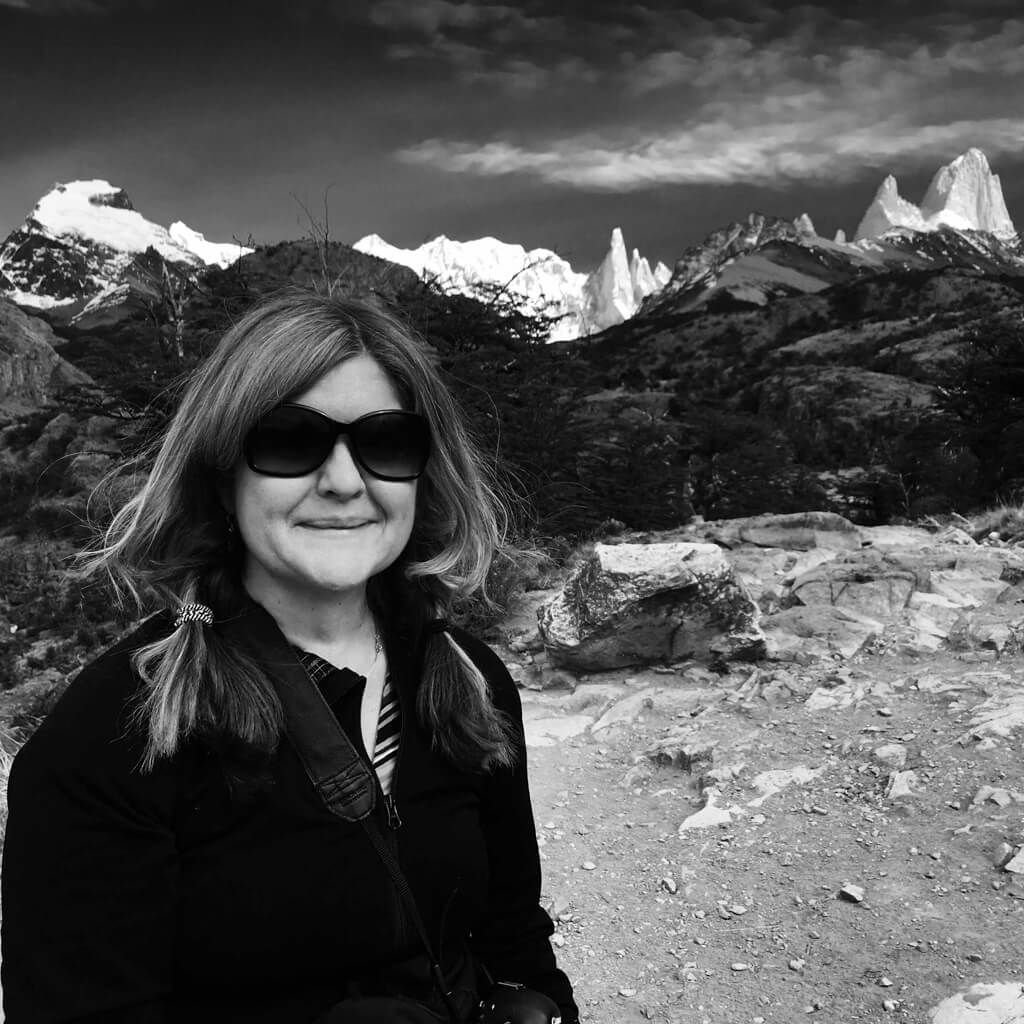





Can't find what you're looking for? Try using these tags: